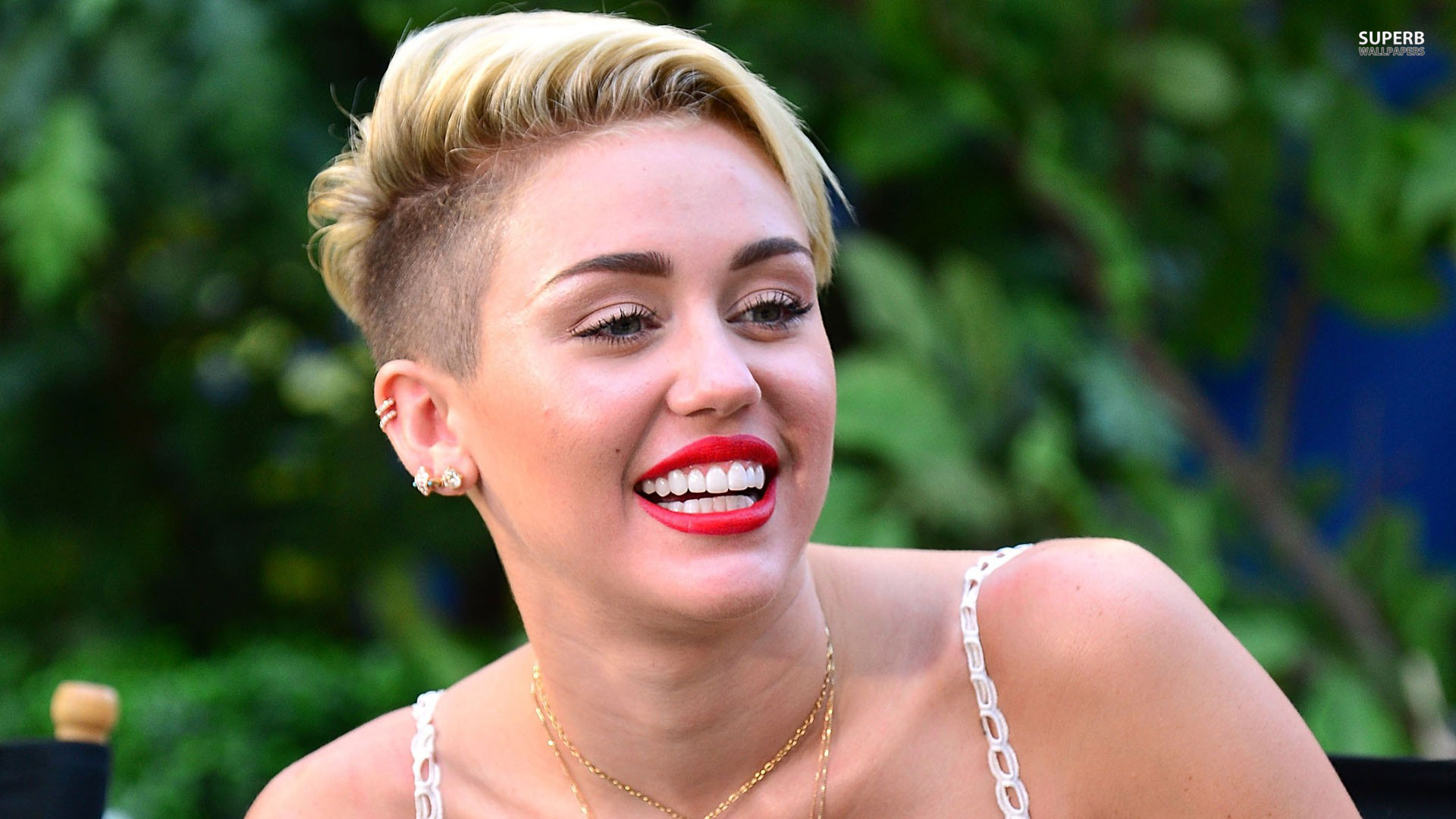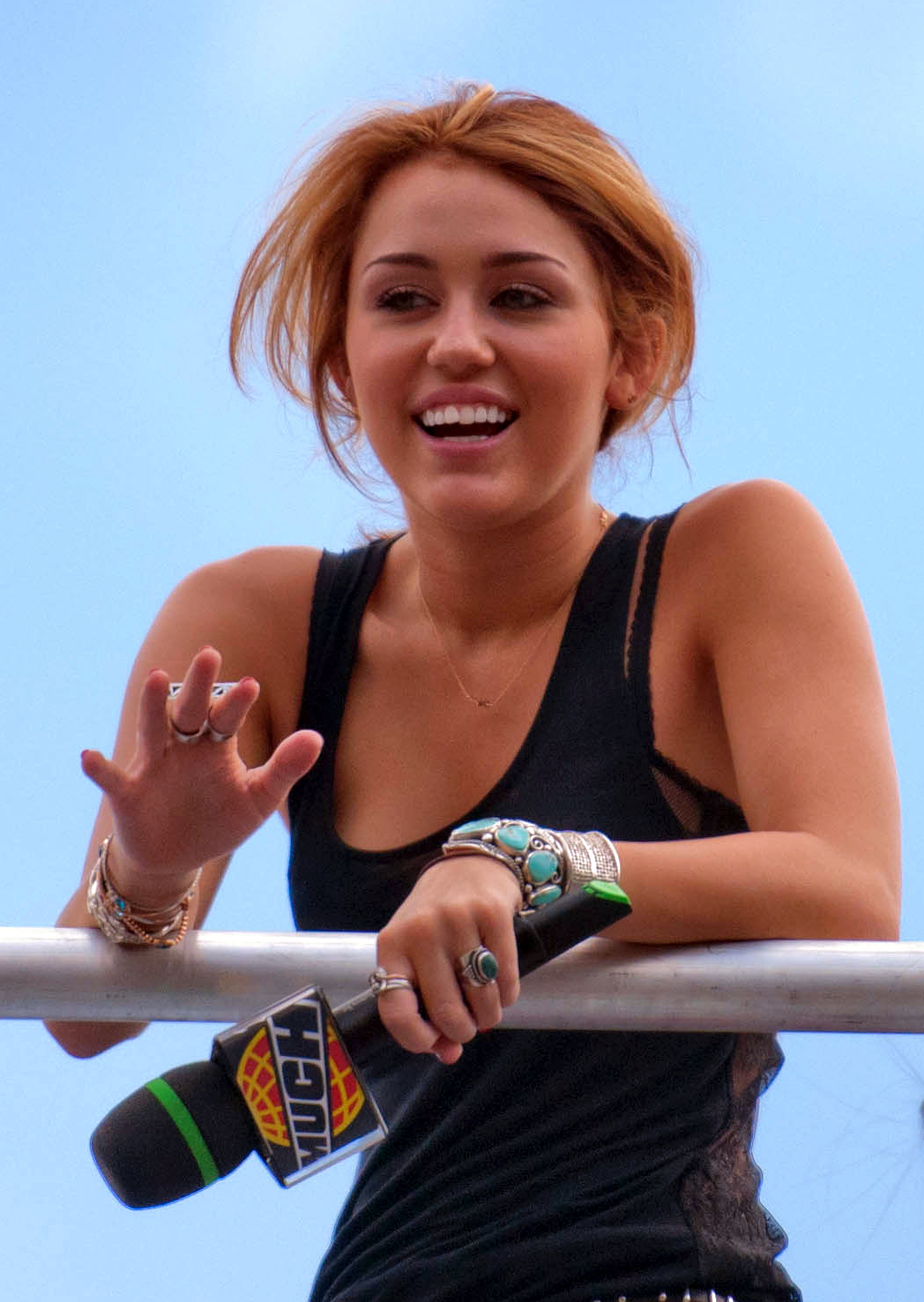Let's talk about Miley Cyrus and why her name often becomes a magnet for sensational headlines. If you've been scrolling through the internet, you might have stumbled upon some questionable content labeled as "Miley Cyrus Nude." But hold up, before we dive deep into this topic, let me tell you something important. This isn't just about a celebrity or a scandal; it's about understanding how misinformation spreads online and why it matters to all of us.
Let's get real for a second. The internet is wild, and anything can go viral in a blink of an eye. When it comes to celebrities like Miley Cyrus, her bold fashion choices, music evolution, and public persona often make her a target for clickbait headlines. But does that mean every scandalous headline you see is true? Not even close, my friend.
What we're going to do here is break down the truth behind the "Miley Cyrus Nude" buzz, explore why it happens, and provide you with the facts you need to navigate the digital jungle. So, grab a coffee, sit back, and let's dive in.
Read also:Unlocking The Power Of Usps Post Office Boxes Your Ultimate Guide
Understanding the Clickbait Phenomenon
Clickbait has been around for years, and it's a strategy used by websites to grab your attention. The "Miley Cyrus Nude" headlines are just one example of how this tactic works. These headlines are designed to provoke curiosity, shock, or outrage, making you click on the link without thinking twice. But what happens when you click? More often than not, you're met with misleading content or outright lies.
Why Clickbait Works
Here are a few reasons why clickbait continues to thrive:
- Human curiosity is a powerful thing. We can't help but click when we see something scandalous or shocking.
- Emotional triggers like fear, anger, or excitement can cloud our judgment, making us more likely to fall for clickbait.
- Algorithms on social media platforms tend to favor sensational content, which means clickbait gets more visibility.
Who Is Miley Cyrus?
Before we dive deeper into the "Miley Cyrus Nude" topic, let's take a moment to appreciate who Miley Cyrus really is. She's not just a pop star; she's an artist who has reinvented herself multiple times throughout her career. From her days on Disney Channel to her edgy performances on stage, Miley has always been unafraid to express herself.
Miley Cyrus: A Quick Bio
| Full Name | Miley Ray Cyrus |
|---|---|
| Birthdate | November 23, 1992 |
| Place of Birth | Fayetteville, Tennessee, USA |
| Occupation | Singer, Songwriter, Actress |
| Claim to Fame | Disney Channel's "Hannah Montana," "Wrecking Ball," and numerous hit songs |
The Truth About Miley Cyrus Nude Content
Now, let's address the elephant in the room. Is there any truth to the "Miley Cyrus Nude" headlines? The short answer is no. These headlines are almost always fake or misleading. In most cases, they lead to fake websites, phishing attempts, or NSFW content that has nothing to do with Miley Cyrus herself.
How These Headlines Are Created
Here's how it usually goes down:
- Someone creates a sensational headline involving a celebrity.
- The headline spreads across social media platforms and forums.
- People click on the link out of curiosity, but they're often met with fake or unrelated content.
Why Sensationalism Hurts Celebrities
Sensational headlines don't just harm the people who fall for them; they also hurt the celebrities involved. Miley Cyrus, like many other public figures, has been a victim of misinformation and cyberbullying. These false narratives can damage reputations, invade privacy, and even lead to legal issues.
Read also:Unveiling The Truth About Michael Jacksons Vitiligo A Comprehensive Guide
Impact on Mental Health
Celebrities are human beings too, and they have feelings. Constant exposure to false narratives and cyberbullying can take a toll on their mental health. Miley Cyrus herself has been open about her struggles with mental health, and it's important to remember that the words we use and the content we share can have real-world consequences.
How to Spot Fake News and Clickbait
Now that we've established the dangers of sensationalism, let's talk about how you can protect yourself from falling for fake news and clickbait. Here are some tips to help you navigate the digital world:
Red Flags to Watch Out For
- Headlines that seem too outrageous to be true.
- Websites with poor design or spelling mistakes.
- Links that redirect you to multiple pages before showing the content.
- Content that lacks credible sources or references.
The Role of Social Media Platforms
Social media platforms play a significant role in the spread of misinformation. While they have policies in place to combat fake news and clickbait, enforcement can sometimes be inconsistent. It's up to us as users to be vigilant and report suspicious content when we see it.
What Platforms Are Doing
Here's what some major platforms are doing to tackle the issue:
- Facebook and Instagram use AI to detect and flag misleading content.
- Twitter has implemented policies to ban accounts that spread fake news.
- Google has updated its algorithms to prioritize credible sources in search results.
How You Can Help
We all have a responsibility to stop the spread of misinformation. Here's how you can make a difference:
Actions You Can Take
- Verify the credibility of the source before sharing content.
- Report fake news and clickbait to the platform where you find it.
- Engage in conversations that promote critical thinking and fact-checking.
The Importance of Privacy and Consent
Another crucial aspect of this discussion is the issue of privacy and consent. Celebrities, like anyone else, have the right to control their personal information. Sharing or spreading unauthorized content, even if it's not real, can still violate their privacy and rights.
Legal Implications
Here are some legal consequences of sharing unauthorized content:
- Copyright infringement lawsuits.
- Defamation claims.
- Violations of privacy laws.
Conclusion
So, what have we learned today? The "Miley Cyrus Nude" headlines are almost always clickbait designed to grab your attention and mislead you. It's important to be aware of how misinformation spreads online and how it affects both celebrities and regular people. By staying informed and taking action, we can all contribute to a healthier digital environment.
Before you go, I want to leave you with a call to action. Share this article with your friends and family to help spread awareness about clickbait and misinformation. Together, we can make the internet a safer and more trustworthy place for everyone.
Table of Contents


